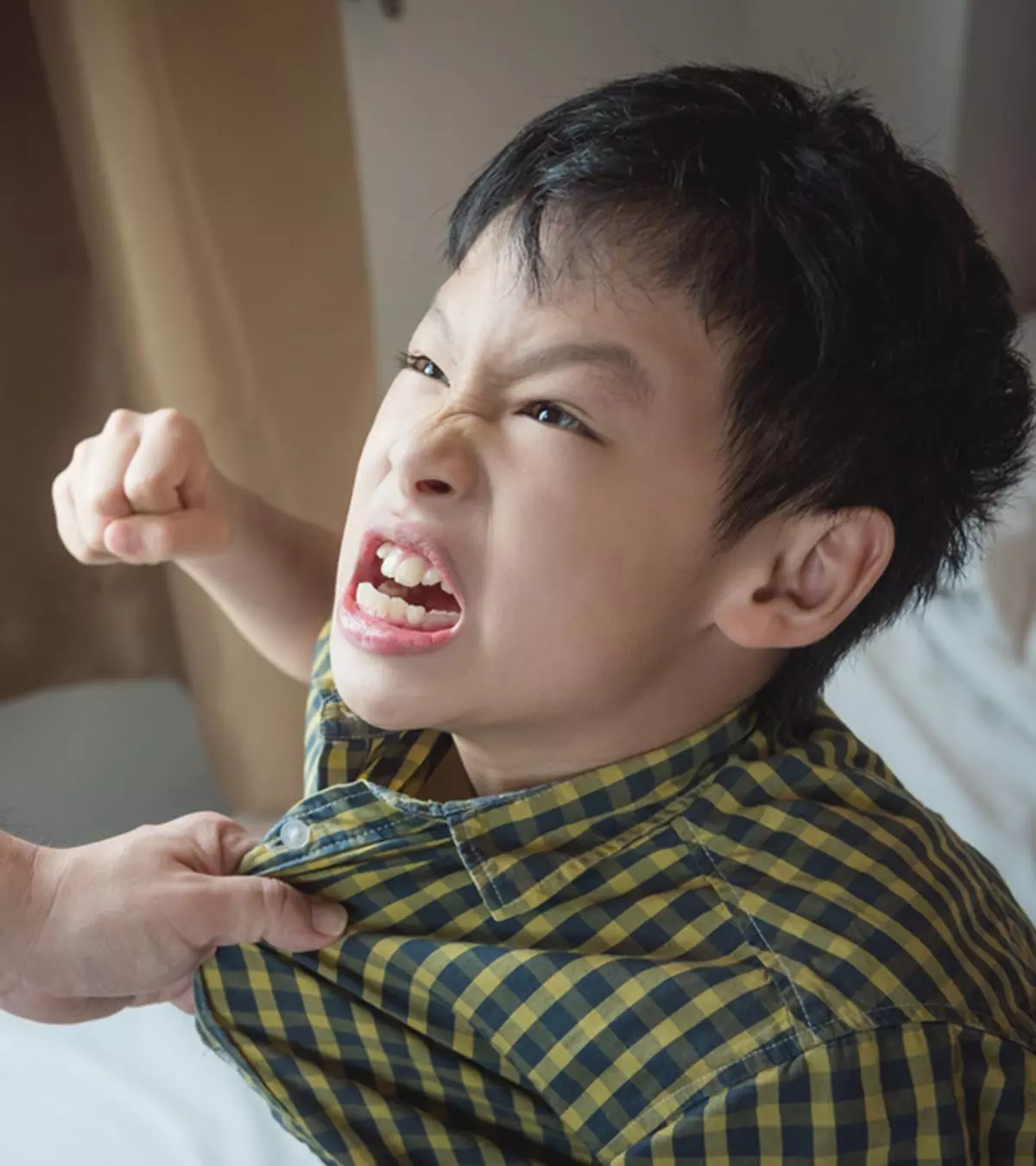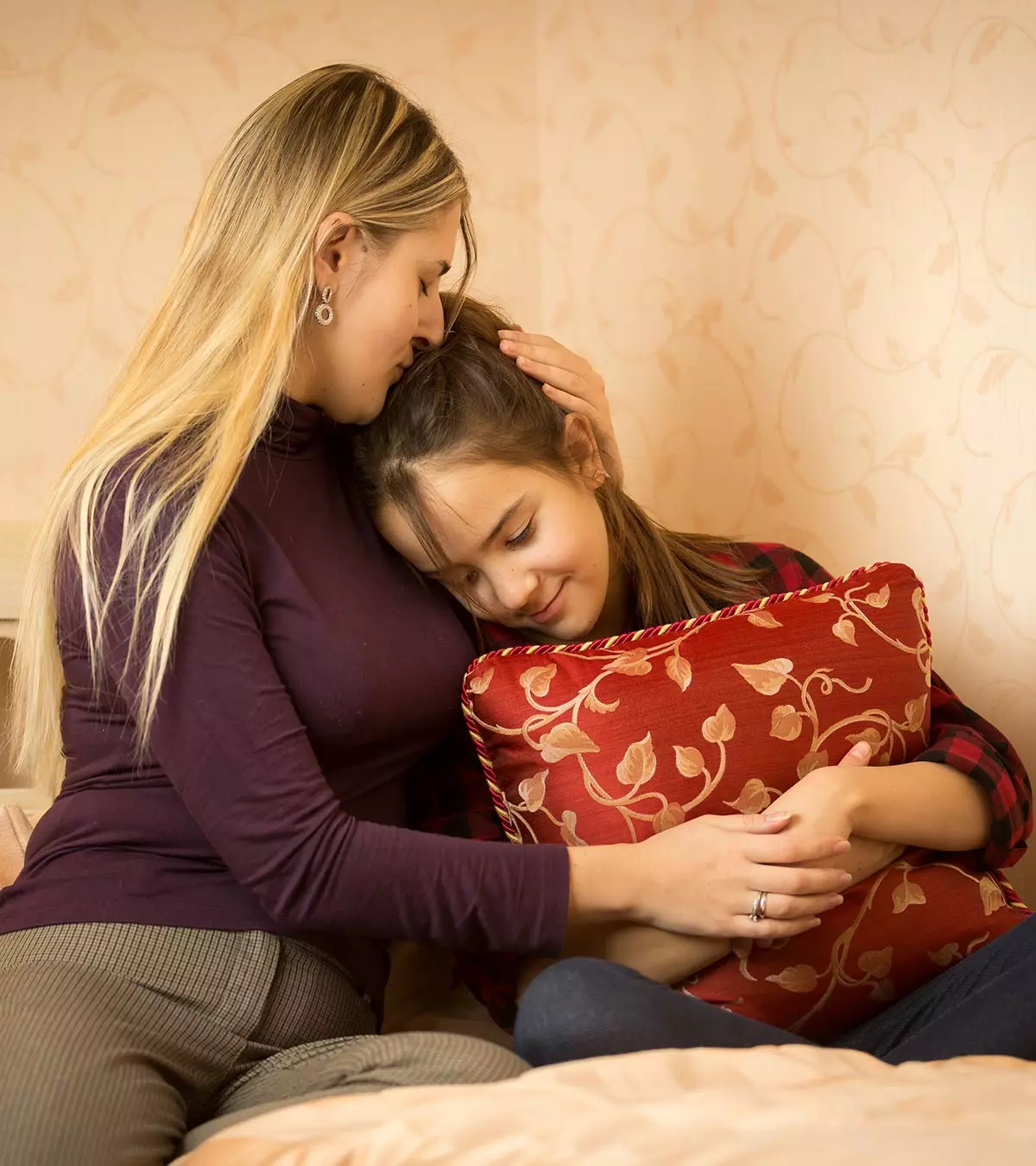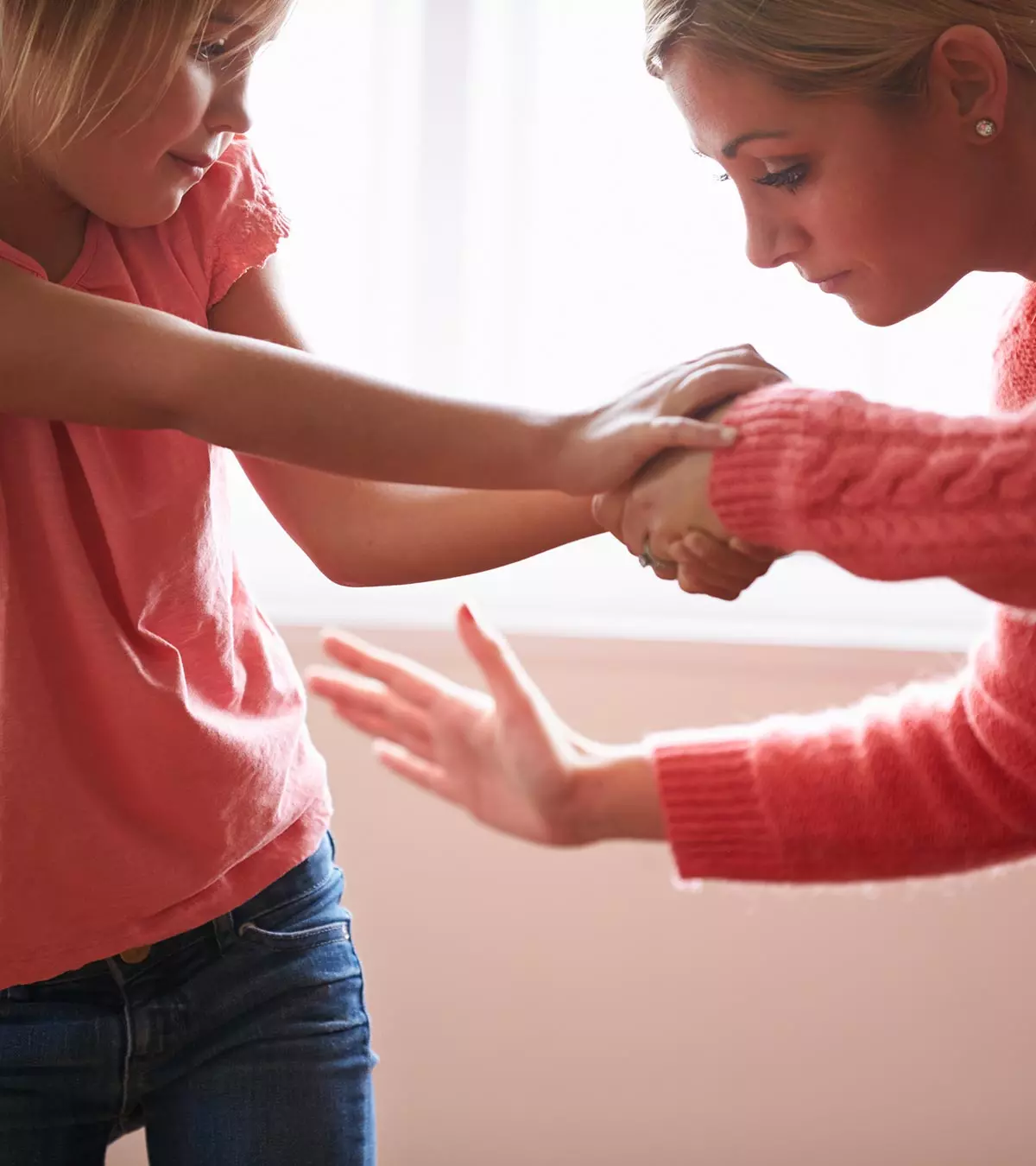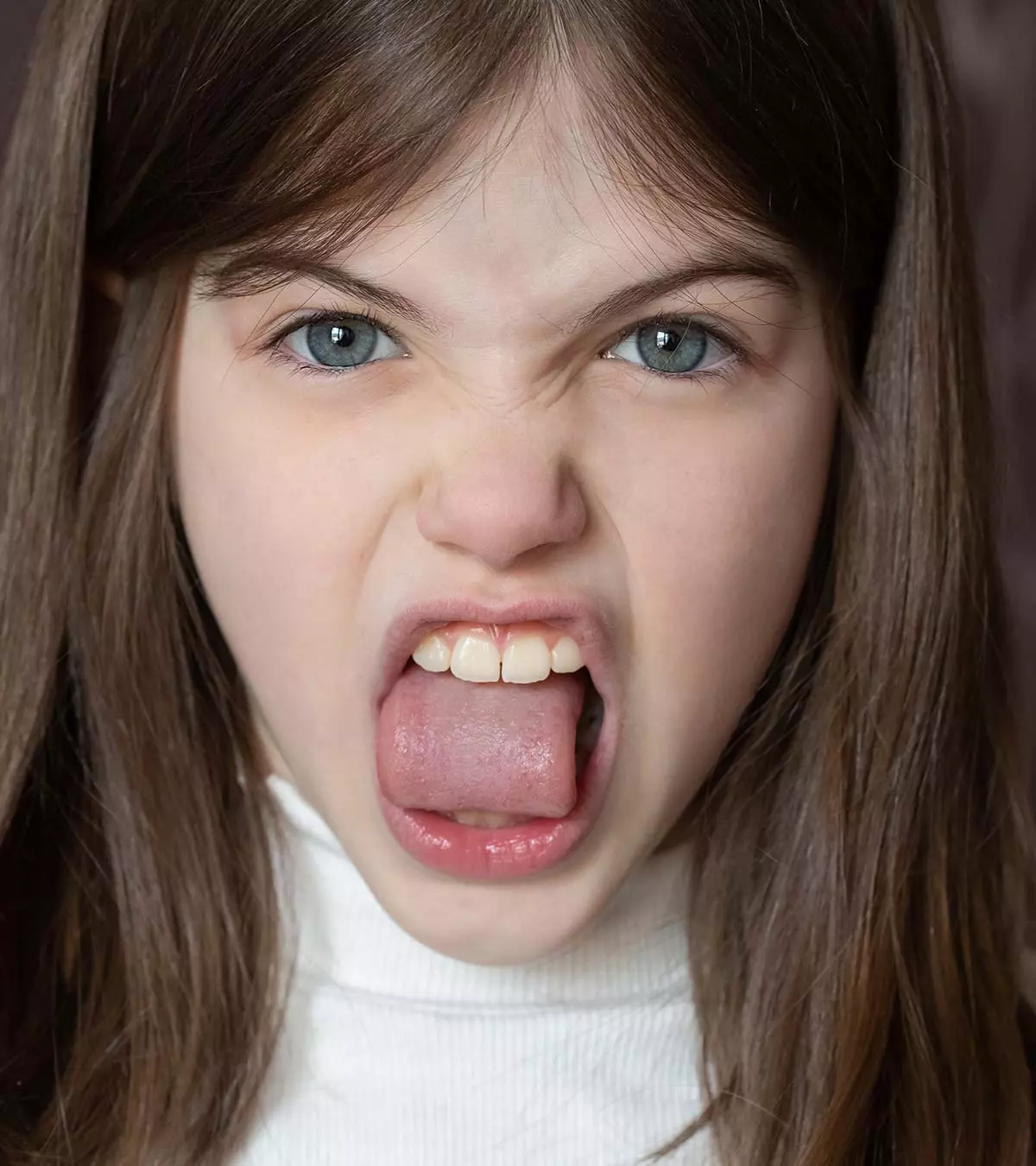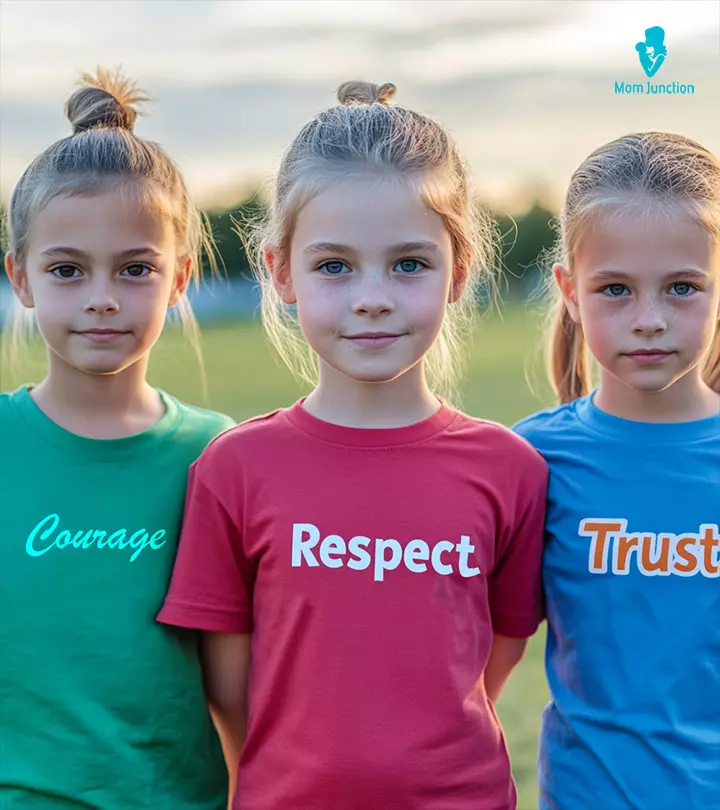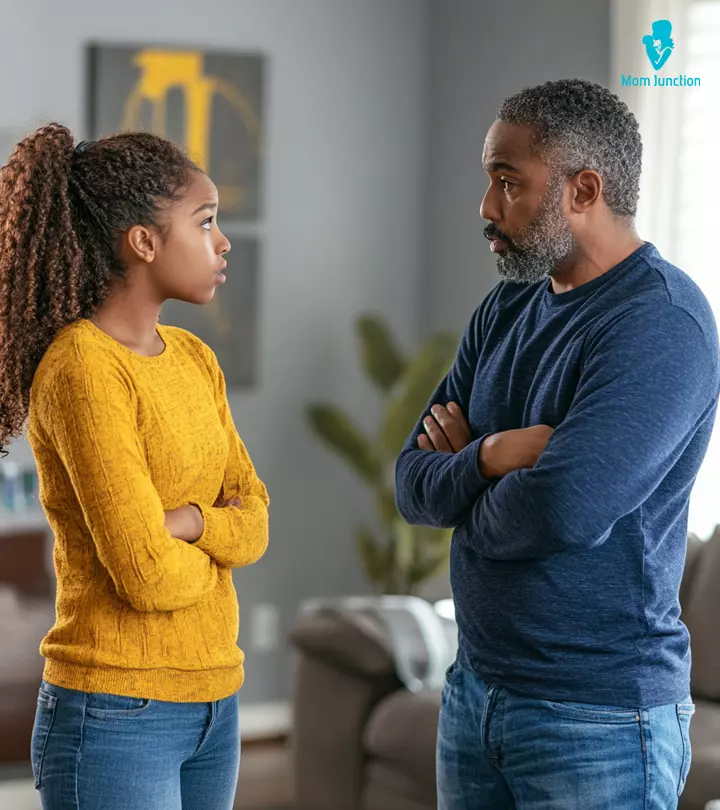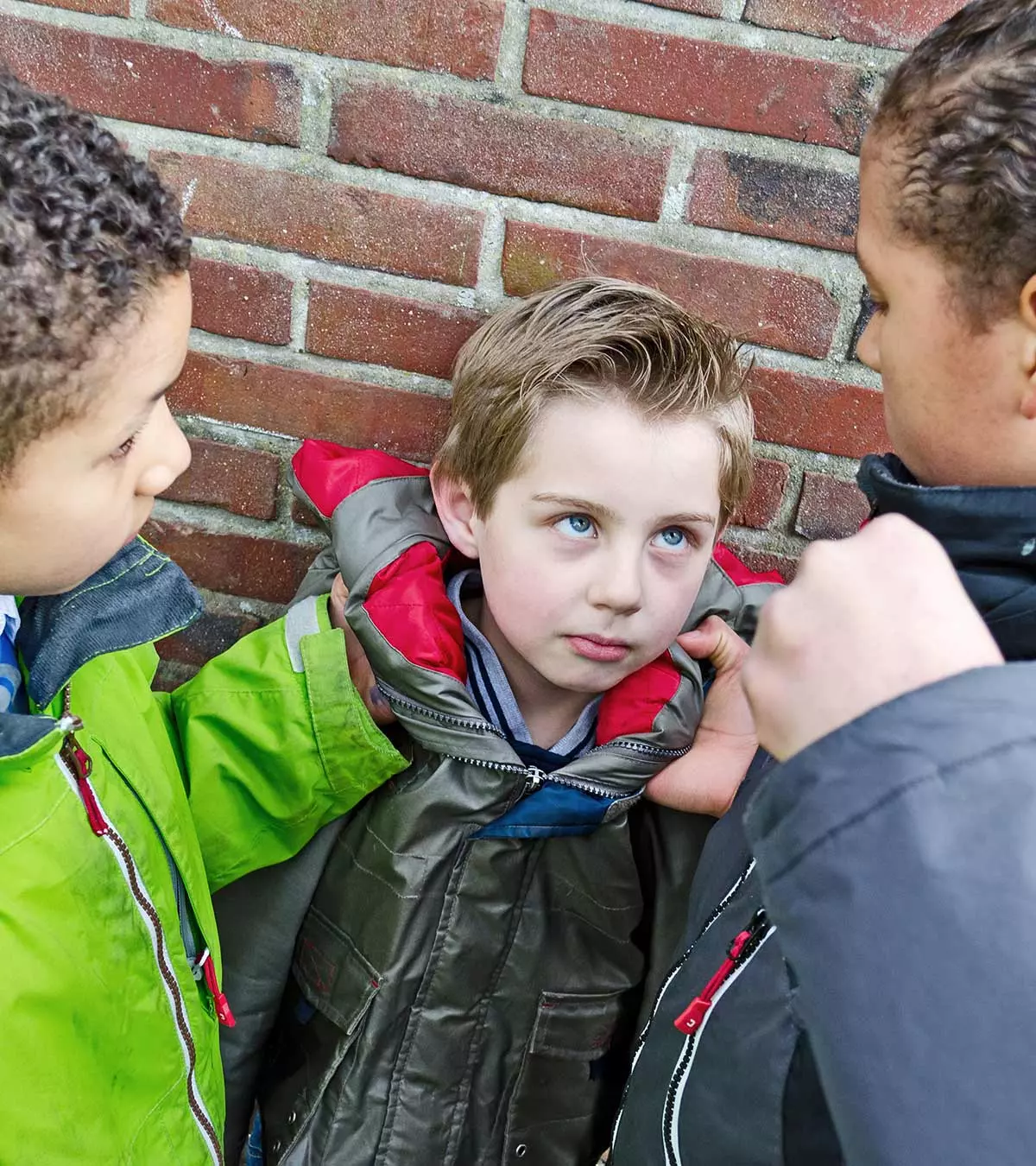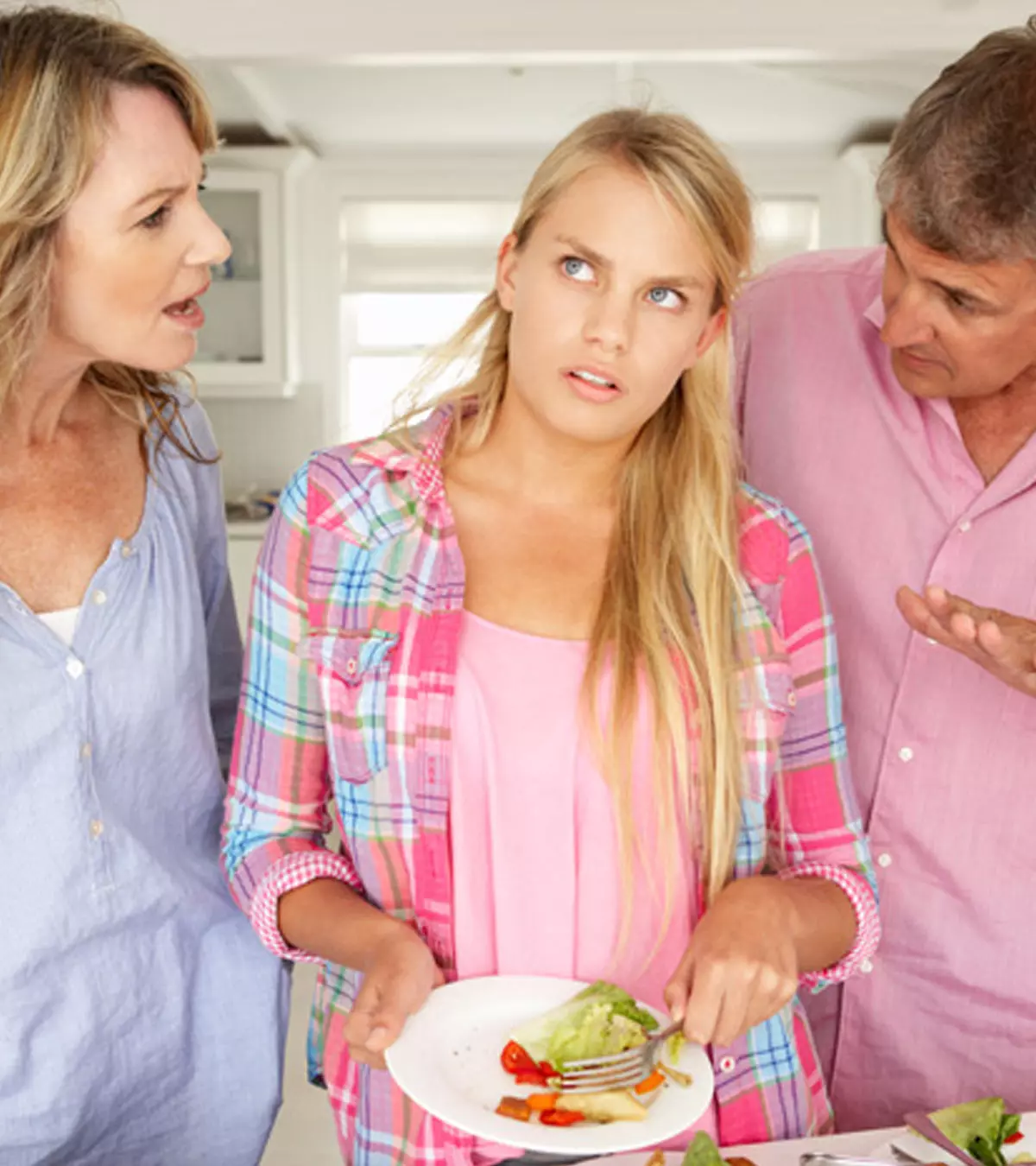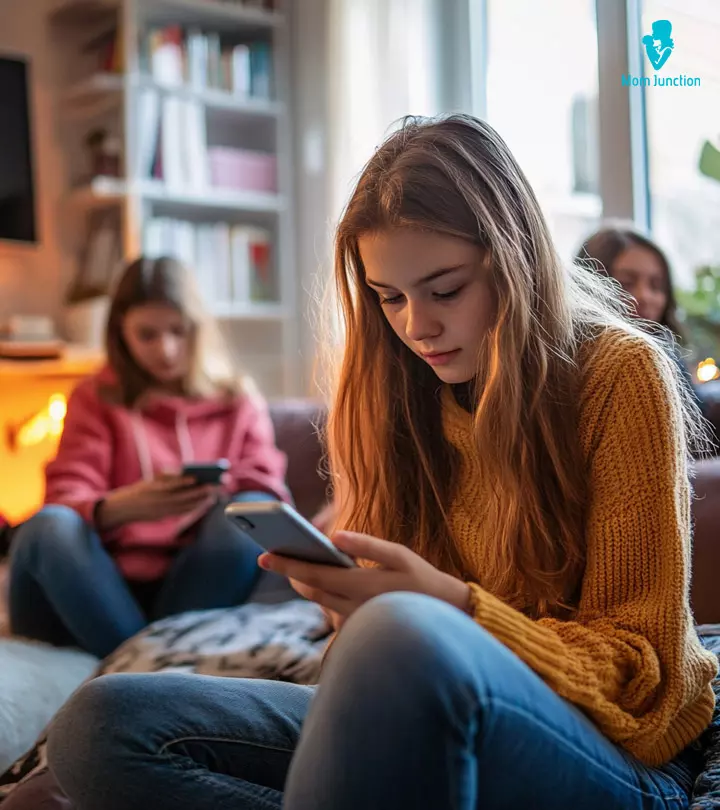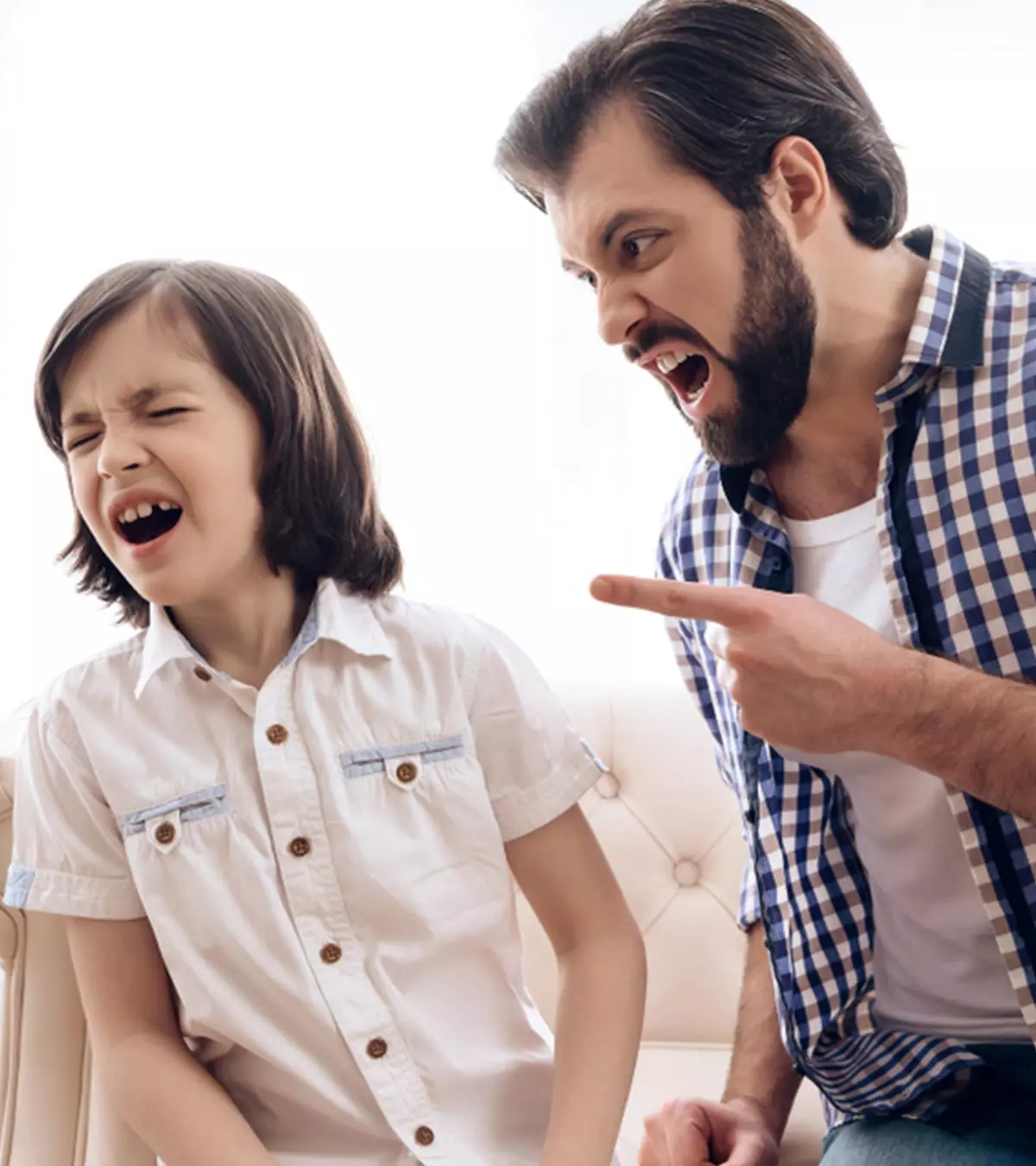
Image: Shutterstock
Yelling at kids can be as harmful as hitting them since yelling with verbal put-downs or insults qualify as emotional abuse. An even-tempered parent may sigh and feel angry in situations when you come from work and see your child’s mess — toys all over, overflowing sink, or paints or stains on carpets, walls, or on furniture. Despite the reason, yelling at children is not the right thing to do.

Parents may explore alternatives to yelling that can yield a better response. For instance, you may use child locks for drawers or get help from a babysitter or assistance if necessary. You may explain to your child that it is bad behavior and try positive reinforcement through healthy rewards.
Read on to know the reasons, effects, and how to avoid yelling at kids.
Key Pointers
- Parents may unknowingly yell at children when they are tired or overwhelmed with emotions.
- Yelling may make children undisciplined and affect their health.
- The next time you yell at your child, try to calm down and apologize to your child soon.
- Try to break this habit by counting to ten when triggered, identifying the triggers, and thinking positive thoughts.
Why Do Parents Yell At Children?
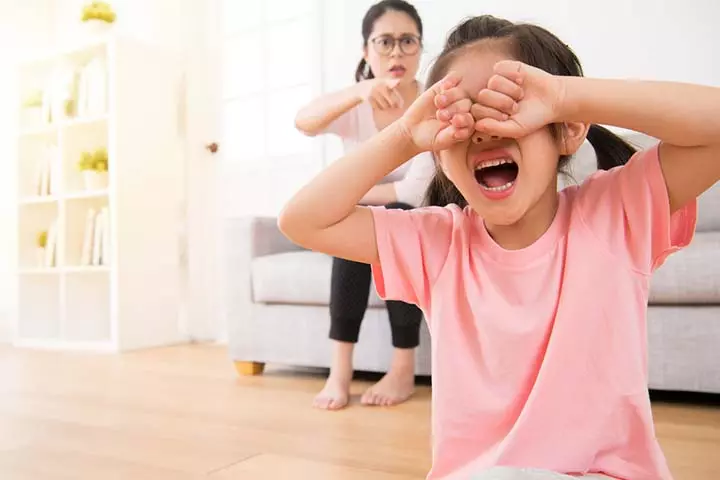
Parents might yell at kids when they are tired, overwhelmed, and angry. These may make parents feel frustrated with even the little setbacks that they otherwise would overlook in a happier mood.
Understand that yelling works as a short-term solution for dealing with bad behavior. Children stop whatever they are doing, giving the parent some temporary relief but in the longer run, the child uses a similar behavior to express.
Most parents do not yell knowingly. They might sometimes lose control over their temper and their words when they are tired or see tasks stretched out ahead of them. At such times, yelling at kids may seem to be the easy way out because they are young and much less likely to argue or talk back.
According to a nationally representative survey conducted by Pew Research Centre, it was found that being a parent can be both tiring and stressful for many individuals. The survey, which involved 3,757 US parents with children under 18, revealed that 41% of parents feel tired, while 29% experience stress all or most of the time. These findings indicate that parents often face exhaustion and overwhelming emotions, contributing to frustration and yelling at their children, even for minor setbacks.
 Point to consider
Point to considerEffects Of Yelling At Your Child
According to New York-based psychologist Dr. Alice Rizzi, “Yelling impacts children on both a conscious and unconscious level. Consciously, kids may feel you don’t love or care about them. Unconsciously, they may believe they are a ‘bad kid’ rather than understanding that they did something wrong.”
Yelling at kids is a harsh method of disciplining children and can have a deep, negative psychological impact on them (1). Some effects of verbal abuse on children are listed below:
1. It can make them behave worse

While yelling can make your child stop whatever they are doing, it will create more problems for you and them in the future. Children always look for new ways to explore things. So, if you yell at them to stop them from doing a certain thing, they might pick up something more dangerous the next time, which will have you yelling more.
This can become a vicious cycle. Also, the likelihood of children listening to you after reaching a certain age is very less. Yelling at kids can also trigger aggression as they seek to defend their actions, leading to more poor behavior.
2. It causes changes in the brain
Yelling is the result of several negative emotions. These negative thoughts bombard your child’s brain chemistry. In general, the human brain processes and clings to negative thoughts more than positive ones. Frequent yelling can cause significant changes in your child’s developing brain (2).
3. It can cause depression
Children who are frequently yelled at develop a sense of low self-esteem and suffer from a lack of confidence, which may lead to poor performance. They believe themselves inadequate at performing various activities and develop a poor self-image. As a result, they are more likely to have low self-esteem and suffer from depression well into adulthood (3). Frequent yelling can profoundly impact children, resulting in persistent feelings of insecurity, withdrawal, and isolation.
4. It affects health adversely
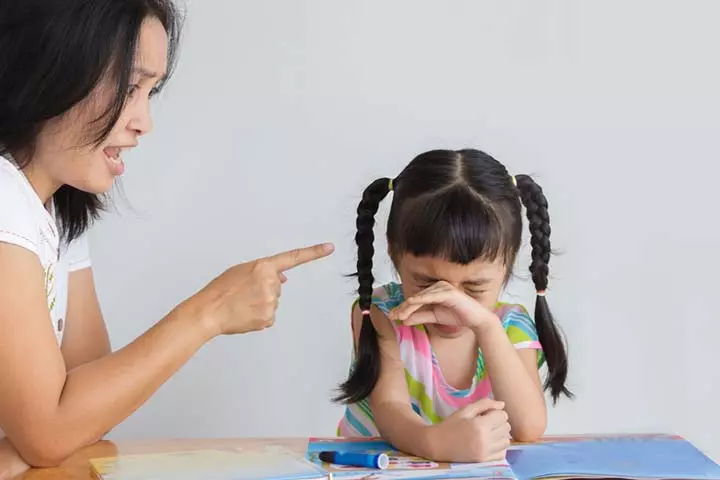
Yelling causes stress in children and impacts their physical health. In some cases, yelling could cause long-term health problems. Some children may experience arthritis, back and neck problems, severe headaches, etc. These symptoms may carry into adulthood, making life difficult for them (4).
5. It can contribute to maladaptive coping mechanisms
Frequent yelling hinders good communication, making it harder for kids to express emotions and develop socially. This can lead to difficulties in defining needs and feelings, leading to maladaptive or unhealthy coping, such as withdrawing or being aggressive. These challenges persist into adulthood, affecting personal and professional relationships and impeding effective communication and social interactions (5).
6. It may lead to attachment trauma
Regular yelling damages the parent-child bond, fostering insecurity that persists into adulthood and impeding the formation of healthy relationships. Adults with a history of tumultuous upbringing might find it challenging to establish fulfilling connections. This can lead to a pattern of repeatedly entering into unhealthy relationships, as disrupted early-life attachment patterns continue to influence their ability to form and maintain meaningful emotional bonds (6).
What To Do After Yelling At Your Child?
If you are unsure of what to do after yelling at your children, try the following three steps:
1. Calm yourself
Follow the techniques: Stop. Release and Act. Your feelings are all over the place, and you probably have a crying child. Go to another room, if possible. Close your eyes and take deep breaths. You can even take up a calming activity that helps your mind relax, such as knitting or embroidery.
Rupesh N. Bhambwani, a father of a son and a preteen girl, shares helpful tips that help prevent him from yelling at his children. He states that he would either sit down for a conversation to soothe himself, alter his posture for a change, or walk away from the situation that makes him angry, requesting a moment to process the situation before returning to address it. He adds, ”I have just these two methods that work best for me. “Have I attained Nirvana? No. It’s all WIP (work in progress). But I have a head start in that direction. I am getting better (i).”
Another option for calming down is doing some physical exercise, such as walking or jogging. If you are alone with no one to take care of your children and cannot step outside without them, you can do some stretches at home or even listen to calming music. Identify what works for you.
2. Calm your child down
Once you have calmed down, calm your child down. If you said something harsh, hold them and say sorry. Tell them it was just a temporary emotional outburst. Your child will be disturbed after this episode, and they might be upset. They will be in no mood to process what you say, and their attitude might trigger your anger further.
If your child is very young, hold them close and comfort them. For toddlers and preschoolers, talk to them about their feelings or let them cry. Take measures to promote anger management in kids. Physical exercise can be useful for school-aged children and teenagers. You can also encourage them to listen to music or take up art to calm down.
3. Apologize positively

Whether you have yelled because of their doing or yours, you must accept that yelling is wrong and apologize for doing it. Talk calmly with your child, tell them about your feelings, and ask them about theirs, as healthy communication is crucial in parenting. It builds trust and understanding, making it a valuable learning experience for the parent and the child.
This method ensures that all your feelings are out in the open, and there is little scope for bottled-up negative feelings. Your children will also learn about conflict-solving techniques and learn to make decisions about their behavior.
 Quick tip
Quick tipWhat Can You Do Instead Of Yelling At Your Child?
If you feel burdened by guilt after yelling at your children in a fit of anger, there are ways you can modify your behavior and look out for alternatives. As you are an adult and have more control over your emotions than your children, you can achieve these alternatives with constant vigilance and practice. As you practice these, your children also learn how to manage their anger.
1. Count up to 10
Whenever you feel your temper rising, take a deep breath, turn away, and count up to 10. This is one of the most effective methods to break your chain of thought and collect yourself.
2. Talk about anger
Anger is a very common emotion, and you must talk to your children about it. Tell them how it comes about and what to do when it does. You can also discuss other negative emotions, including shame, sadness, and jealousy, that often accompany anger.
3. Be calm but firm
Not yelling at kids doesn’t mean you have to stop disciplining them. They are still too young to know right from wrong. Instead of yelling at them, you can choose to be calm but firm while giving them the right instructions.
4. Use consequences
Instead of threatening your children with punishment, use consequences to reinstate good behavior. Small but fair consequences such as taking away toys or restricting screen time after a warning will ensure better behavior in the future without the need for you to resort to shouting. This will also let the children know that bad behavior has consequences.
5. Identify your triggers
Usually, you get angry when you are triggered by something. It might be tiredness, a bad day at work, less sleep, the constant crying of a child, a long list of chores, or even an untidy living room. It is up to you to recognize what triggers your anger and distance yourself from your children when you feel triggered. Excuse yourself from your children and spend some quiet time alone to relax. Mindfulness techniques like deep breathing or meditation can help regulate your feelings and respond calmly to your children.
6. Teach when calm

Yelling will get you nowhere. It might only antagonize your children. Instead, calm yourself down first and talk to them only when your feelings are in check. This way, you can convey your message more effectively, and your children will also learn that yelling does not get things done.
7. Be realistic
Sometimes, our expectations exceed reality, and we end up getting angry and yelling at our children. However, with children, it is best to keep your expectations realistic. You cannot expect your impulsive child to behave when outside and then get angry because they did not.
8. Make it easier for them
Asking them to get water from the glass on the table will most likely end up in an accident, with spilled water on the floor and another chore on your list. Instead, try to think from your child’s viewpoint and arrange things so that it becomes easier for them to manage without much difficulty.
9. Think positive things
When your child does something that triggers your anger, think about their positive qualities. It might be something as simple as them wishing you good morning when they wake up. These little positive things will help you take off the edge of your anger, and you will be able to deal with the situation objectively.
10. Recognize whose fault it is
Sometimes, parents are so troubled by their own problems that they take their anger out on their children. This is called misplaced anger, and your children might not even understand why you were yelling at them. This kind of anger can usually be recognized when you flare up for the smallest of reasons and yell for far too long. Identify sources of your stress for creating effective strategies that help manage emotions better.
11. Create a routine
Children love routine. If you do not have a routine yet, it is time you set one as soon as possible. You can include step-by-step instructions for the tasks so that your children manage to finish them easily. The most difficult part of creating a routine is sticking to it. However, if you persevere, there is very little chance of your children committing mistakes and you yelling at them.
12. Reduce friction
When there is a chronic issue surrounding a particular situation, it is up to you to reduce the friction. For example, if your child takes particularly long to get ready for school, and you end up yelling, it is time for you to act. Lay out their clothes the previous night for easier access. Make them sort and arrange their books ahead of time as well. Little things like these go a long way in reducing tantrums.
When you yell at your children, both you and your child experience a plethora of emotions. It is up to you to help them recognize their feelings and talk about them openly. Failing to do so might make your children bottle up their feelings and develop negative emotions such as fear and anger.
Frequently Asked Questions
1. Will my child remember me shouting?
Though occasional yelling may not have a sustained impact, frequent expression of anger through shouting may leave long-lasting memories. Children may hear their parents’ voices yelling at them in their heads, even in their absence (7).
2. Is it too late to stop yelling at my child?
No, it is never too late to change your behavior towards your child. Toddler discipline is about teaching young children boundaries and acceptable behavior without harshness. Children have been found to do better when they feel loved, safe, and treated with respect.
3. Can parents’ yelling cause anxiety?
4. Can being yelled at cause emotional trauma?
Being shouted at can be traumatic and may have long-term psychological ramifications. Yelling can help the other person’s self-esteem. It might lead to psychological harm and emotional suffering. For example, a child could feel inadequate if they hear their parents yell at them (8).
Many parents end up yelling at kids when they are frustrated or exhausted. Of course, you may not yell at your child deliberately, but it is normal to lose your cool and feel helpless, making you shout at their unfavorable behaviors. However, if you are thinking about how to discipline your child, you may follow certain beneficial measures such as having a calm approach, having realistic expectations, talking about outcomes, and appreciating them for their positive behaviors. As a result, you may notice favorable changes in their behaviors and succeed in disciplining them without yelling.
Infographic: Things You Can Say Instead Of Yelling At Your Child
There can be times when your conversation with your child might be on the verge of taking a heated turn. But it would help if you kept in mind the adverse effects of yelling on a child. Follow this infographic to understand what you should say and should not.
Some thing wrong with infographic shortcode. please verify shortcode syntax
Illustration: Psychological Effects Of Yelling At Kids & 12 Ways To Handle
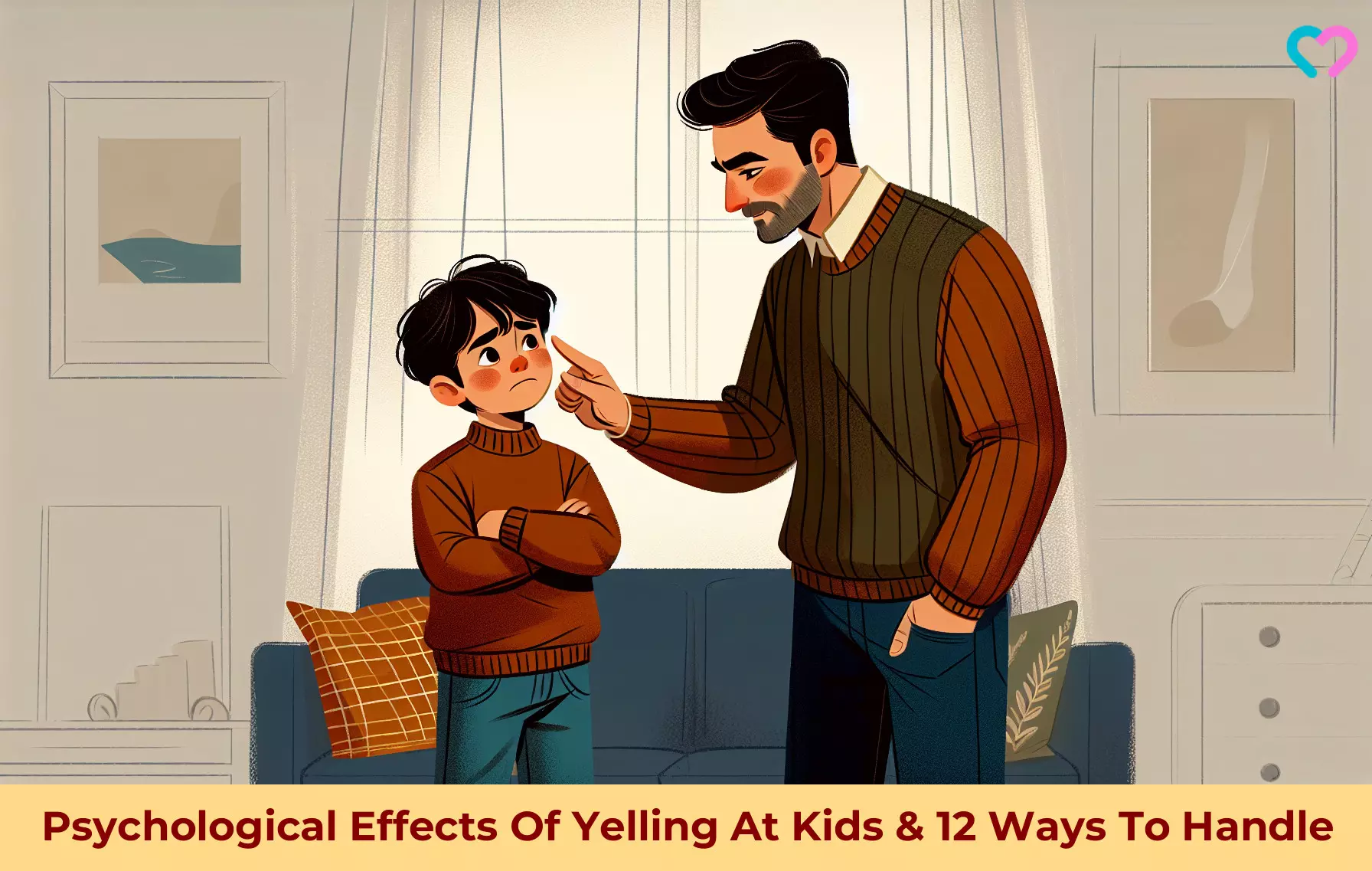
Image: Dall·E/MomJunction Design Team
Discover the potential consequences of yelling at children in this informative video to better understand its impact on your child.
Personal Experience: Source
MomJunction articles include first-hand experiences to provide you with better insights through real-life narratives. Here are the sources of personal accounts referenced in this article.
i. I have yelled at my kids. I realized there is a better way;https://medium.com/any-given-sunday/i-have-yelled-at-my-kids-i-realized-there-is-a-better-way-de3befe41f02
References
1. Study says yelling is as hurtful as hitting; American Academy of Pediatrics
2. Akemi Tomoda et al.; Exposure to parental verbal abuse is associated with increased gray matter volume in superior temporal gyrus; NeuroImage (2010).
3. Ming-Te Wang and Sarah Kenny; Longitudinal Links between Fathers’ and Mothers’ Harsh Verbal Discipline and Adolescents’ Conduct Problems and Depressive Symptoms; HHS Author Manuscripts (2015).
4. Natalie J. Sachs‐Ericsson et al.; When Emotional Pain Becomes Physical: Adverse Childhood Experiences, Pain, and the Role of Mood and Anxiety Disorders; Journal of Clinical Psychology (2017).
5. Kristina Sesar et al.; Multi-type Childhood Abuse, Strategies of Coping, and Psychological Adaptations in Young Adults; PMC (2010).
6. Shelley A. Riggs and Patricia Kaminski; Childhood Emotional Abuse, Adult Attachment, and Depression as Predictors of Relational Adjustment and Psychological Aggression; Journal of Aggression, Maltreatment & Trauma (2010).
7. The Problem with Yelling; National Alliance on Mental Illness.
8. The Psychological Effects Of Being Yelled At; Mantra Care
9. How can yelling hurt your child’s mental health? And ways to replace yelling; The Art of Living India
Community Experiences
Join the conversation and become a part of our nurturing community! Share your stories, experiences, and insights to connect with fellow parents.
Read full bio of Dr. Neha Mehta
- Dr. Alice Rizzi is a licensed psychologist in New York and telehealth provider in Florida. She has been providing therapy to adults for over 12 years and has an established private practice in NYC for four years. Dr. Rizzi is also a mindfulness mindset coach and creates courses, workshops, and programs on mindfulness, meditation, and values-based living.
 Dr. Alice Rizzi is a licensed psychologist in New York and telehealth provider in Florida. She has been providing therapy to adults for over 12 years and has an established private practice in NYC for four years. Dr. Rizzi is also a mindfulness mindset coach and creates courses, workshops, and programs on mindfulness, meditation, and values-based living.
Dr. Alice Rizzi is a licensed psychologist in New York and telehealth provider in Florida. She has been providing therapy to adults for over 12 years and has an established private practice in NYC for four years. Dr. Rizzi is also a mindfulness mindset coach and creates courses, workshops, and programs on mindfulness, meditation, and values-based living.
Read full bio of Apoorva K
Read full bio of Dr. Ritika Shah
Read full bio of Vidya Tadapatri







